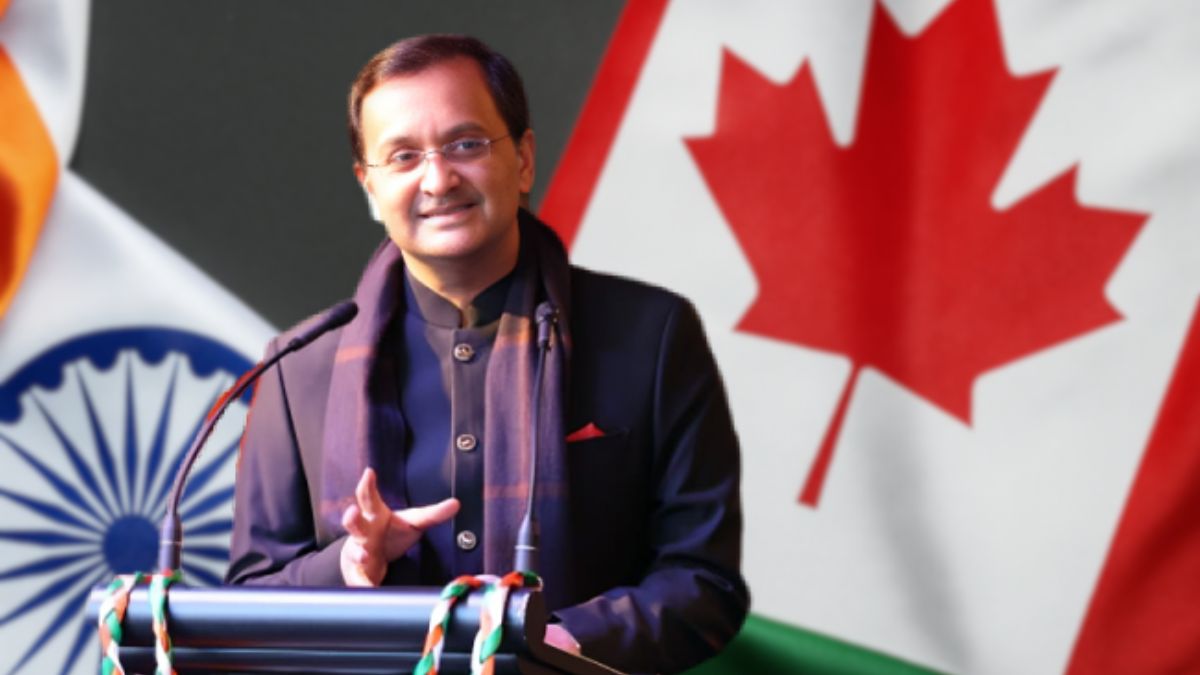India’s Envoy to Canada Says Khalistan Issue a ‘Canadian Problem,’ Rejects Allegations of Indian Involvement

High Commissioner of India to Canada, Dinesh Patnaik, addressed the Khalistan issue in an interview recently. Image courtesy: RNA
India’s new High Commissioner to Canada, Dinesh Patnaik, has said that the threat posed by Khalistani groups operating in Canada is a domestic challenge for Ottawa to address, not an Indian one.
Speaking in an interview with CTV’s Question Period, Patnaik dismissed allegations linking Indian diplomats to criminal activities as “preposterous and absurd,” underscoring that New Delhi had never carried out extraterritorial actions.
Patnaik revealed that ongoing discussions between Ottawa and New Delhi have focused on “the entire security situation,” including the activities of separatist elements within Canada.
“What we are talking about now are the different security scenarios that are happening in this country,” he said, referring to groups “terrorising” communities and holding bilateral ties “hostage.”
What the envoy convey to Canada on Khalistani terror?
The envoy strongly asserted that the Khalistan issue cannot be externalised as India’s burden alone. “Canada cannot look at this situation as an Indian problem. It’s a Canadian problem. There are Canadians who are creating this problem,” he said.
Patnaik also expressed frustration at needing personal protection due to reported threats from Khalistani extremists.
“I find it strange that a high commissioner here has to be under protection. I should not be under protection in a country like this,” he told CTV, adding that security discussions between both countries also address the safety of Canadians in India, reflecting mutual concern.
How India’s ties with Canada strained since 2023?
Relations between India and Canada have been strained since Prime Minister Justin Trudeau’s 2023 allegation that Indian agents were linked to the killing of Hardeep Singh Nijjar, a Canadian Khalistani leader. Canada later expelled six Indian diplomats, prompting reciprocal expulsions from New Delhi.
Earlier this year, Canadian authorities accused Indian officials of engaging in “clandestine activities” including homicides and extortion, allegations India has vehemently denied. “We are still waiting for any evidence to be given,” Patnaik said, calling the claims “without any substantial evidence.”
How Canada reiterated commitment to safety?
Then Canadian Prime Minister Justin Trudeau had maintained that his government takes threats of violence seriously. “Canada has always taken violence and threats of violence extremely seriously… We have always taken serious action against terrorism, and we always will,” he said in 2023.
During her recent visit to New Delhi, Canadian Foreign Affairs Minister Anita Anand met Prime Minister Narendra Modi, where both sides identified new areas of cooperation in trade and artificial intelligence.
Anand reiterated that public safety remains “the first and foremost priority of the Government of Canada,” while raising issues of “transnational repression” and the need for “independent investigations” into alleged crimes on Canadian soil.
However, some groups criticised Ottawa’s stance. The Sikh Federation of Canada accused the government of using community safety as a “bargaining chip,” saying that deeper diplomatic ties with India ignored continuing threats to Khalistani activists.
How is Canada moving toward dialogue with India?
Despite tensions, officials from both countries are attempting to rebuild ties. RCMP Commissioner Mike Duheme recently described talks with Indian counterparts as “good” and “positive.”
Canada’s National Security and Intelligence Advisor Nathalie Drouin also met her Indian counterpart in New Delhi last month to discuss security cooperation.
Patnaik reaffirmed India’s position, stating, “Extraterritorial action by India is never done,” and expressed hope that renewed security dialogue would help restore trust between the two nations.







